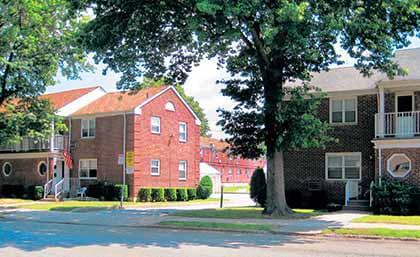By Howard Koplowitz
Co-op owners in the borough were left with a rude awakening earlier this month when they found out the assessed values of their properties jumped by between 50 and 140 percent.
Now advocates and elected officials are trying to get the obviously flawed values, which would be passed down to co-op owners in the form of a spike in maintenance increases, thrown out.
“It’s tax revolt Queens-style and I think it’s gaining traction,” said Glen Oaks Village President Bob Friedrich, who said the co-op’s value rose 86 percent in the eye of the city.
“What really makes it astounding is that we all know property values have been declining the last few years,” he said. “There’s no way the value of Glen Oaks Village went up 86 percent.”
Friedrich said state Sen. Toby Stavisky (D-Whitestone) and Councilman Dan Halloran (R-Whitestone) helped set up a meeting last week with co-op presidents and the city’s finance commissioner at which the commissioner agreed to take a second look at the valuations.
While homeowners cannot see their city property taxes rise by more than 6 percent a year or 25 percent over five years, there is no such cap for co-op owners.
Friedrich said if the valuations stick, it would mean Glen Oaks would have to increase monthly maintenance fees by 30 percent, making it difficult for co-op residents to live there.
Friedrich said Glen Oaks was not the only co-op in the borough to be assessed dramatically high – the value of Le Havre in Whitestone jumped 122 percent and Cryder Point, also in Whitestone, rose 147 percent.
“There’s no basis in any economic reality for these numbers,” he said.
City Councilman Mark Weprin (D-Oakland Gardens) said he filed a FOIL request with the city for co-op property tax information, which the city told him he will receive within the next 20 days.
“There’s a weird formula involved in this,” Weprin said.
The councilman said co-ops are evaluated by what a rental apartment would go for, but he said the valuations for Queens co-ops may suggest the city was using Manhattan co-ops as the standard.
“I don’t know what rentals they’re using,” Weprin said. “This is really a terrible hit to co-operators.”
In Bayside, Weprin said, the largest valuation increase was 147 percent, including a 100 percent increase for The Estates at Bayside in Oakland Gardens.
Friedrich said the borough’s co-ops may file a lawsuit to get the valuations thrown out, and that if they go that route, elected officials representing the area would sign on to the litigation.
Reach reporter Howard Koplowitz by e-mail at hkoplowitz@cnglocal.com or by phone at 718-260-4573.



































